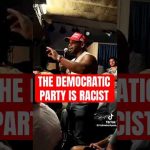In an ongoing battle between state and federal authorities, President Trump is doubling down on his campaign promise to make Washington, D.C., safe again. Meanwhile, the mayor of Chicago is not backing down, either. Instead, he is taking steps to prevent federal law enforcement from intervening in his city, leaving many observers questioning the implications of this political tug-of-war.
The mayor of Chicago has signed an executive order aimed at curbing the power of federal law enforcement in his city. This order explicitly prevents Chicago police from collaborating with the National Guard or federal agents during patrols, arrests, or immigration checks. The mayor believes that protecting the constitutional rights of his constituents is paramount and is determined to keep federal intervention out of the Windy City. His reasoning is straightforward: he does not want to see the streets filled with tanks or citizens apprehended in unmarked vans.
On the flip side, President Trump argues that crime in cities like Chicago is spiraling out of control and that federal intervention is necessary. He points to alarming statistics, such as the six people killed and 24 shot in Chicago during just one weekend. Invoking the president’s success in D.C.—where he claims crime has dramatically decreased in just two weeks—Trump is adamant that a similar approach is needed in Chicago. The FBI has also chimed in, with reports of thousands of violent offenders arrested since a nationwide initiative began in June.
This clash between the mayor and the president does not seem to be going anywhere fast. Many analysts believe that Democrats may struggle to prevail in this political debate. Polls show that crime is a major concern for nearly everyone in cities across the country. With 99% of city inhabitants recognizing crime as a severe problem, it seems illogical for any official to downplay the issue. The current discourse places Democrats in a precarious position, as they attempt to assert they have crime under control, despite evidence to the contrary.
In the meantime, the narrative in Chicago reflects a growing disconnect between local officials and federal authorities. It raises serious questions about how states and the federal government can cooperate effectively to tackle ongoing crime. Critics argue that by resisting federal assistance, local leaders may be putting their communities at risk. If state leaders reject federal help and continue to assert they have the situation under control, they could very well face voter backlash.
As this political drama unfolds, citizens in Chicago and beyond are left anxiously waiting to see how their leaders tackle the pervasive issue of crime. The stakes are high, and while the mayor may be set on his executive order, President Trump remains steadfast in his approach. The outcome of this clash might just reshape how crime is addressed across the nation, and it is a situation that is worthy of much attention.




